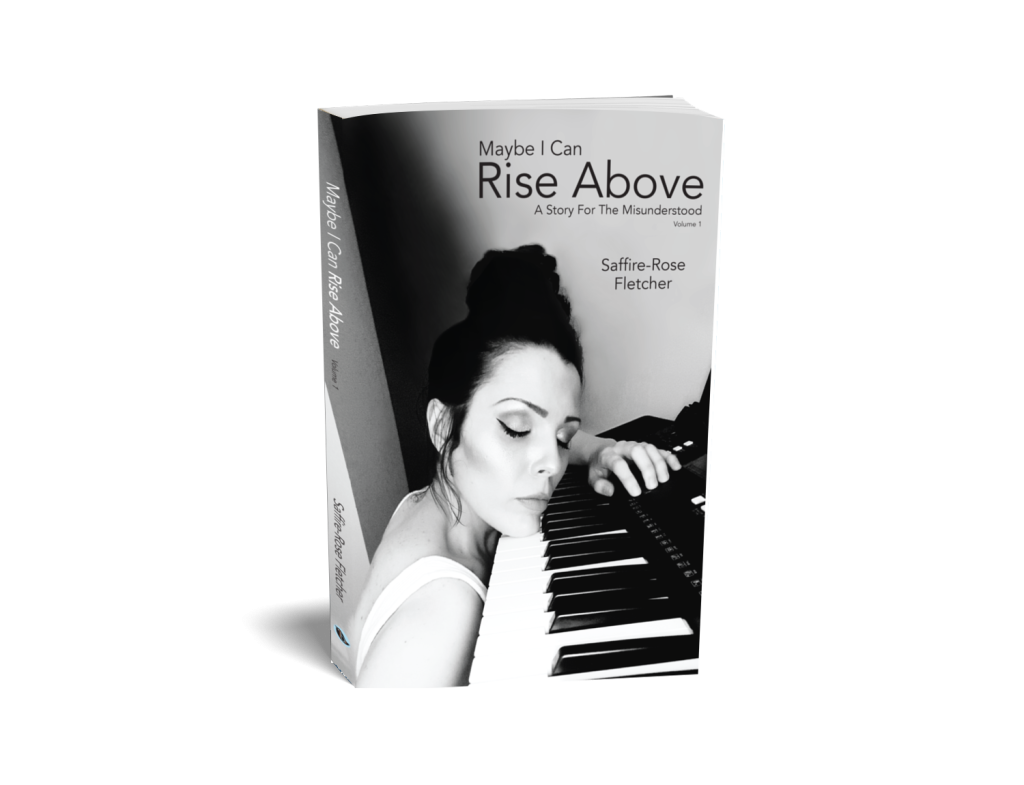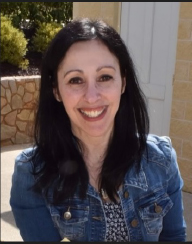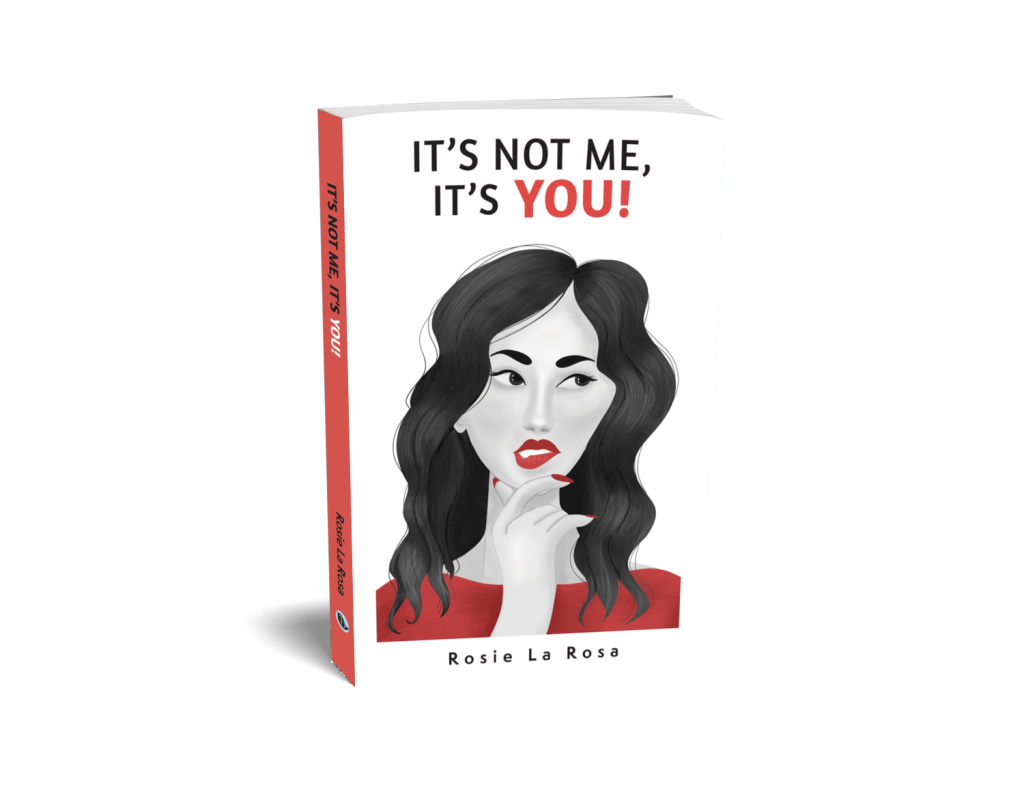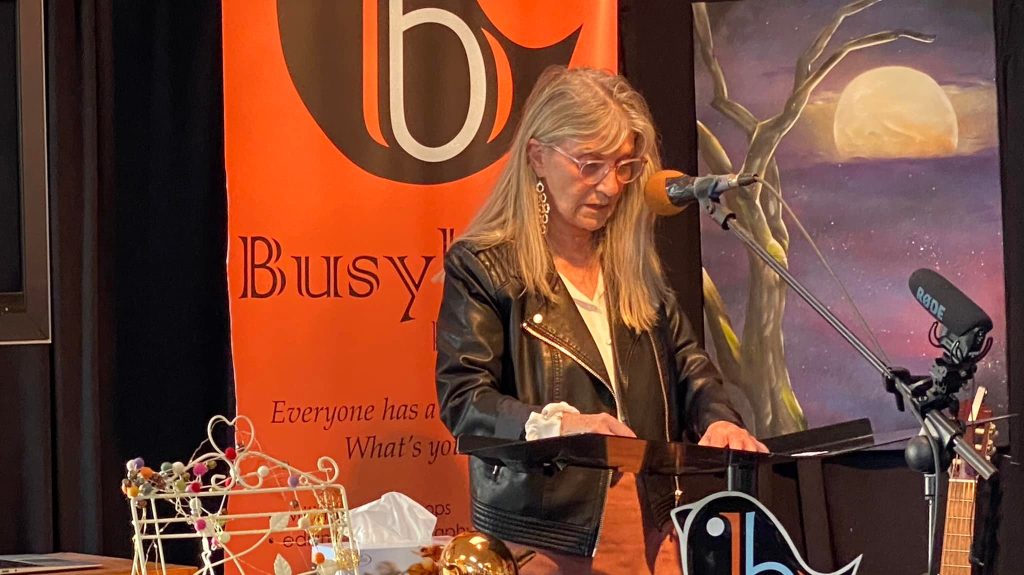

Busybird
Welcome to the Busybird blog, where you can find helpful articles, updates, industry news and more. Make sure you stay up to date by signing up to our newsletter below.
Profile: Saffire-Rose Fletcher
March 12, 2023
Tell us a bit about yourself …
I’m a singer/songwriter of eight years in total, I’ve studied counselling and applied it to two non-fiction books infused with my love of philosophy and my overall life story.
My life purpose is to help people feel less alone with growing pains, adversities and to encourage more self love in the world.
What draws you to writing?
I originally started writing poems to express the emotions that I was suppressing during my day to day life.
Little did I know those words would attribute to songs and furthermore, books.
So tell us about your books?
My books are about my life story, alongside my love of psychology and philosophy.

Both books, Maybe I Can Rise Above and Revive My Life, are built on the honest foundations of the human condition and how I’ve navigated my way through a tumultuous life.
Where did the ideas come from?
The idea came from journaling.
I originally wrote diary entries from the beginning in order to ascertain why I turned out the way I did and how to correct my life. Then I decided one day, I’m going to make it a book.
Little did I know I’d be writing two in a short period of time.
What’s the story you’re trying to tell?
How to break generational patterns and evoke more self love, despite what the word encourages us to reject about ourselves.

I want to highlight that we’re still enough, no matter what stage we’re at in life.
And what do you hope your readers draw from your writing?
To love themselves, to be gentle with their growing pains and to know that they’re not alone.
What’s your writing process?
Life experience and applying it to word document *cheeky grin*.
Tell us one thing about your book, or your writing process, that nobody else knows.
My publisher/editor endures a lot of audio notes of me crying and questioning particular sections that I’m uncertain should remain in my book. Lol.
What are you working on next?
I have a new song that I’ll be recording in the studio called ‘Save Yourself’. I’m very excited.
When readers talk about you as an author, what do you hope they’re saying?
I just care that I’m helping people feel less alone out there.
Any advice for other writers?
Be brave. Don’t hold it all in.
Links
www.instagram.com/saffirerosefletcher_official
tiktok.com/@saffirerosefletcher
https://www.facebook.com/saffireroseofficial
https://www.facebook.com/saffireroseofficial
Profile: Rosie La Rosa
March 7, 2023
Tell us a bit about yourself …
I am Melbourne born and raised and have lived in Melbourne all my life.
Loved growing up with an Italian heritage. I am the youngest of all of the cousins and would love the weekend get-togethers at my aunties houses surrounded by laughter and food.
We would all pile into a small lounge room and watch movies on end. Steve Martin and John Candy movies would be watched over and over and I believe my humour stems from my siblings, cousins, Steve Martin and John Candy.
I have a passion for animal welfare and believe that all animals deserve to be loved and care for.
I believe a good cup of coffee can lift your day!
What draws you to writing?
I have been told that I am a good storyteller, I think I inherited that from my mum.
Writing a book was always an item on my ‘to do’ list. It’s just something I always wanted to do.
So tell us about your book?
My book is a humourous take on the multitude of characters that we meet through all walks of life.

It calls out some of the not-so-nice behaviours that we may encounter but it also details all of the wonderful characters.
There are some ‘light ‘strategies at the end of some chapters on how to best handle the behaviour being exhibited.
It also recognises and celebrates the fact that everyone is uniquely different.
Where did the idea come from?
The idea was created in the hard lockdowns, thinking of all the behaviours that seem to be evident in many people. Same behaviours – different people.
From there my imagination went into overdrive and I could visualise characters, almost cartoon like displaying the behaviours.
Each chapter tells a new story of a character, the behaviours they display and any associated strategies.
What’s the story you’re trying to tell?
Recognise that life encompasses all, good, kind and the not-so-kind and that from each is a lesson to be learned, but what’s ultimately important is that you remain true to who you are.
And what do you hope your readers draw from your writing?
My hope is that readers will relate to a chapter or two and know that they are not alone in experiencing some of life’s challenges but also to appreciate the good and to cherish those moments.
What’s your writing process?
Not sure that it is a process, but I hear the chapter unfolding in my head and I take to my laptop. I take a break when I feel that the writing is not free flowing, and return when the ideas are in my head.
Tell us one thing about your book, or your writing process, that nobody else knows.
The illustrator has never met me in person, nor does she know my name and yet I am told that the cover looks like me.
A little uncanny.
What are you working on next?
I am currently working on documenting my father’s migration to Australia in the 1950s and all of the discrimination and hardships he faced during this time.
When readers talk about you as an author, what do you hope they’re saying?
I hope they enjoy the book and if they relate to it would be great.

Any advice for other writers?
The same advice that was given to me – ‘start writing’.
And don’t be so hard on yourself.
Where can we get your book?
It’s not me, It’s YOU! Is available online on Amazon, Booktopia, Barnes and Noble and other online stores.
I will also be participating in the Clunes Bookstown Festival on the 25th and 26th March and will have a stall where it can be purchased. Matching coffee mugs will also be on offer.
Links:
Why I Care
October 27, 2022
I am very young, and I will admit that I do not know very much. But I do know there is nothing of more paramount importance or more significant power than the Truth. It is what every single Spiritual Teacher and Sage of every tradition from every period from every part of the world has taught to those who would hear them. There is no freedom without Truth.
The Truth is often difficult to accept, especially in this world where Truth is so often muddled and scattered. It is inherently belligerent, for it is at constant war with deception. Deception is easy. It requires no conscience, no thought, no will, no spirit to take in; it is painless perception. Truth is exactly the opposite; it is difficult, complex, and often a painful reality. Truth can tear down our entire world and break us perhaps beyond repair, even though it is just alignment of perception to reality. That is why Art is so important.
An Artist uses lies to tell the Truth, and therefore destroys the ability of deception to deceive. The paintings of the Greats are merely assortments of refractions of light in various patterns that our eyes perceive to be an image. The compositions of music that could not go unrecognised today are just sounds of different pitch and tone played in different orders by various machines. The written works of the greats are simply sentences of letters which can be digested to mean exactly what the words are on their own.
If deception did not exist, we would never find any value, but simply observe the colours as colours, the sounds as sounds, and the letters as letters. But what we find in that final creation is the humanity of it all. Because within the lies, we eventually find what is True and that causes so much less pain and terror compared to outright Truth. Art can go to both ends of the coin, telling an Artist the Truth within his lies, or telling observers the Truth within the lies of an Artist.
False art exists, however, and it can be more dangerous than outright lies. False Art can bury Truths even further than simple lies can, because it can take on the perceived value of a real piece of Art that defeats deception rather than spreads it. Deception portrays lies as Truth, but Art portrays Truth using lies. We believe the lies, and we find the Truth.
I believe that writing is of particular importance. The world is the most well-read and literate it has ever been. It is reading constantly, whether it be pages of textbooks, words on a screen, signs, subtitles, or anything else. Almost everyone will agree, however, that we live in a deeply troubled society. I say this is because the world has deceived itself into a false form of reality that says our lives are never more than what they seem. That we are not of much value. With so many people reading so much, and facing mountains of deception to climb before they find Truth, why can’t the writings of Artists be used to help them on the journey?
Perhaps I favour writing because I have always had an affinity for language. I have been fluent and/or able to get by with native speakers at some point in my life in eight different languages and have always found ease getting into a workflow with writing, as well as understanding complex works from a young age.
But there are other mediums of Art that will help find Truth; The painter can create images that words cannot describe; musical sounds have been shown to have practically otherworldly properties (such as healing illnesses of the mind); photography, filmmaking, theatre, dance, sculpting, ceramics and all sorts of other things can open the minds, hearts, and souls of those with eyes to see and ears to hear.
All hands were made to tell stories, whether it be our own, the stories of others, or the stories of those who never were. I will tell mine by writing. I care about writing because I care about Art. I care about Art because I care about freedom, and the Truth will set us all free.
-Saif Toukan
Busybird Work Experience Student
Why You Should Launch Your Book
August 26, 2022It might not seem an important part of the publishing process to launch your book. If you haven’t thought about doing it please make sure that you add it to your promotional calendar. Not only should you do it to celebrate the book being published but it’s also an opportunity to start the selling and promotion of it after all the ‘talk’ about it in the lead up to its release.

Many years ago I was working with a client to publish her collection of short stories. She worked hard to prepare her writing for layout and drew images to go with the stories. Her dedication to making the product as good as she could was inspiring and I could see the excitement build as we got closer to the publication date and she set a day to launch.
A couple of weeks prior to the launch date, she called me to tell me that she was thinking of not having a launch. I was confused because I knew how excited she was about it and asked her why.
‘The ladies in my writing group think it’s vain,’ she said.
I was astounded. This was coming from other writers who should’ve been excited for her. I wondered if it was jealousy.
‘How about you call it afternoon tea?’ I suggested. I was sad that she would not go through with celebrating her hard work and a bit annoyed that her ‘friends’ were not supporting and encouraging her.
The launch did end up going ahead on a wintery Saturday afternoon in a library. There were about eighty friends and family gathered together to drink wine, nibble on biscuits and cheese and to buy a copy of ‘the book’. The highlight for me was to see the author sitting at the signing table behind a large stack of books writing messages to her book buyers on the title page of each book. Her smile was large and infectious. Lots of books were sold and she was happy that she decided to launch it.
Writing and publishing a book is a lot of work. Completing it should be celebrated and the joy should be shared with friends. And people want to support you in this (maybe even the jealous ones).
The launch is also a chance to sell some books to replenish the coffers after investing in the publishing. Even if you only sell 20 books, that’ll make you feel like you’ve started the process. If you’ve managed to get good numbers to your launch, it’s not uncommon to sell 50–60 books.
The launch itself is a great platform to promote the book. In the lead up to it, your promotion can talk about the launch when pitching to media outlets. In your book marketing plan, it’s a good idea to go hard on pitching to media at two to three weeks prior to the launch and a week or so afterwards. The aim is to try to get media to attend the launch but this is pretty hard to do unless you have a fabulous pitch or you have celebrity status. If you know someone with celebrity status who can attend the launch, that might help.
Not having media at the launch isn’t a fail though. You may get your story picked up by the local paper or radio and that’s a start. Any media is good. It also helps you to refine the pitch, which is the number one promotion tool.
You can contact media yourself but if you feel that all this launch/media stuff is beyond you, there are great book publicists (who have the right contacts) who can do the work for you. I’d only suggest this if you have big plans for your book and you’re willing to invest the money.
Regardless of how far reaching you want your book to be, launching should be on the agenda. It doesn’t have to be a huge swanky affair. It can simply be afternoon tea at the library. Celebrate your achievement.
In my next blog, I’ll talk about how to launch your book. In the meantime, if you need help with writing, publishing or promoting your book, check out our events at Busybird Publishing.
Finding My Way
June 23, 2022I have never been so naïve to believe that I can do anything that I want.

In fact, I have never even believed that I can do anything that I set my mind to.
Were either of these things true, I wouldn’t be half as stressed by schoolwork, wouldn’t cripplingly suffer from impostor’s syndrome any time I attempt to complete said work, wouldn’t scrap the work within two minutes because it isn’t flawless on the first attempt, and I wouldn’t be unsuccessful in any of my endeavours rather than just a few of them.
Hence, when I am told to write about what I want to do in ‘the future’, I am impossibly lost. Frankly, I have forever believed that such a concept as ‘the future’ is too distant and too obscure to be important to the present.
What I was naïve to believe is that the future stays distant; it does not. Let’s just say, that awakening was rude.
From an early age I have been in touch with creativity: reading, drawing, writing, imagining. I once utilised them as an escape.
As I aged, however, I subconsciously recalibrated those loves to recognise the beauty of the ‘How’.
How is that book so emotionally impactful?
How is that artwork created to convey tone and message?
How is this prose connoting broader messages?
How does art, in any form, inevitably reflect concepts of the world around us?
I like that I ask questions. It makes me an analytical person and somebody who likes to investigate with a fine-tooth comb, whether it be art or media or ideas or people or societies.
But upon realising that my ‘future’ is rapidly approaching, I am facing it in search for how my analysis will help me. Or, more appropriately, how it can help me.
When I began to ask ‘how’, I said that I wanted to work within ‘Art’. There was a period when I wanted to draw, there was a period when I wanted to graphic designer. But I reminded myself that I cannot do everything.
Some things are for specific people; I could call myself an artist all I wanted and I could watch as many YouTube tutorials as I possibly could, but never could I ever learn how to draw hands. I realised that within the visual art spectrum, I neither had the spark nor the skill to get it perfectly accurate or perfectly inaccurate. My pieces always looked like an attempt at one or the other.
So I turned to my other crutches – reading and writing – and it is there, in that corner of ‘Art’, that I began to think I could find myself. I can see myself in this elusive world known as ‘The Publishing Industry’ not only because I can see the possibilities of my analysis, but because I can see the possibilities of my contribution to art that begs to be analysed, investigated and appreciated for its facets.
Ultimately, I don’t know where I want to end up within such a gargantuan industry – writer or editor or designer (probably not that one) or agent or marketer or something in between at a publishing house or magazine company or news corporation – but I know that I want to be able to implement nuance in our written language, which ever so needs it.
Harrison Abbott
Busybird Work Experience Student
